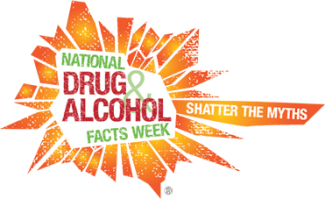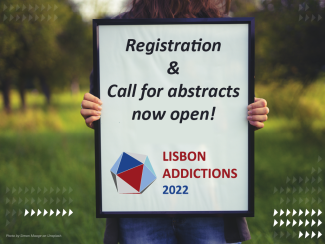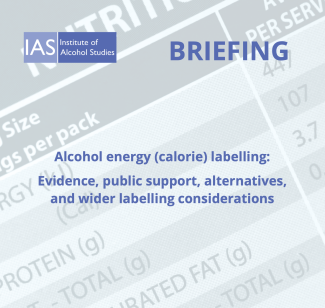Search
Alcohol and illicit drug use among young people living with HIV compared to their uninfected peers from the Kenyan coast: prevalence and risk indicators
There is a scarcity of research on drug use patterns among HIV-positive young individuals in Sub-Saharan Africa (YLWH). To fill the gap, the following was set out:
- compare the prevalence of substance use, specifically alcohol and illicit...
Perspectives of healthcare providers, service users, and family members about mental illness stigma in primary care settings: A multi-site qualitative study of seven countries in Africa, Asia, and Europe
Stigma among healthcare providers is a barrier to the effective delivery of mental health services in primary care. Few studies have been conducted in primary care settings comparing the attitudes of healthcare providers and experiences of...
Strategies Adopted by Addiction Facilities during the Coronavirus Pandemic to Support Treatment for Individuals in Recovery or Struggling with a Substance Use Disorder: A Scoping Review
National Drug and Alcohol Facts Week®
National Drug & Alcohol Facts Week® will be held March 21-27, 2022.
Registration opens on November 1, 2021.
Join NIDA for NDAFW and help share facts about drugs, alcohol, and addiction in your community. Sign up for the latest news...
Public expenditure on supply reduction policies
Supply reduction is often the main approach used for addressing the illicit drug problem.
Evaluating drug policy is an integral part of a cost-efficient approach to tackle illicit drugs. This report takes a first step towards a systematic...
Costs and Unintended consequences of drug policy
Evaluation is an integral part of a good governance approach to public policy. This principle applies equally to the component of drug policy designed to counter the availability of and access to illicit drugs. Estimation or full costing of...
Harm Reduction Rise and Fall. The Lessons Learned from the Greek Experience, Challenges and Recommendations
Abstract
Greece represent a unique case for investigating harm reduction policy since the unprecedented economic recession and the radical austerity programs coupled with the auxiliary effects of an unstable, punitive political...
Clinical Utility of Assessing Changes of Personality Functioning During Substance Misuse Treatment
Abstract
Dimensional models for classifying personality have received extensive empirical support in the treatment of substance misuse. However, we do not currently understand whether and which dimensions of personality functioning are...
Examining the Relationship of Personality Functioning and Treatment Completion in Substance Misuse Treatment
Abstract
Background: Treatment retention is a major factor contributing to favourable outcome in the treatment of substance misuse, but the literature remains very limited. Despite evidence of the association of personality with drug use...
The Role of Personality Functioning on Early Drop out in Outpatient Substance Misuse Treatment
Abstract
Treatment initiation is a major factor contributing to positive outcomes, but the supporting literature remains limited. It is difficult to draw conclusions regarding predictors of dropout, and there is a need to target clients'...
LxAddictions22: Global addictions
Lisbon Addictions is a multidisciplinary conference that provides a forum for networking across addictions.
Submission of abstracts
Potential contributors are invited to submit abstracts for the following main areas/thematic tracks:
- Gl...
Two new tobacco cessation medicines added to the WHO essential medicines list
Every two years, the World Health Organization (WHO) publishes its Model List of Essential Medicines (EML), a collection of medicines considered essential by WHO experts.
The purpose of the list is to guide national authorities on the type...
Seminario de Investigación | Avances del proyecto ENCODAT-INMEGEN, de la epidemiología a la genómica
Humberto Nicolini, INMEGEN
María Elena Medina-Mora, Facultad de Psicología, UNAM
Jorge Ameth Villatoro Velázquez, Instituto Nacional de Psiquiatría "Ramón de la Fuente Muñiz"
Marycarmen Noemí Bustos Gamiño, Instituto Nacional de...
Urdu translation and psychometric properties of WHO-Five Wellbeing Index among male patients with substance use disorders in Pakistan
Abstract
Objective
The present study aims to translate and adapt the WHO-Five Wellbeing Index (WHO-5) into the Urdu language and then determine its psychometric properties.
Method
Male participants (N = 201) between 18 and 45 years old...
REGION DES SAVANES/LUTTE CONTRE LA DROGUE :LE COMITÉ NATIONAL ANTI-DROGUE PREND SON BÂTON DE PÈLERIN
SAVANES/LUTTE CONTRE LA DROGUE :LE COMITÉ NATIONAL ANTI-DROGUE PREND SON BÂTON DE PÈLERIN
Le comité national anti-drogue est dans les savanes depuis le 09 novembre dernier, dans le cadre de la campagne de sensibilisation des élus locaux...
Health and social responses to cannabis problems in Europe — time for a paradigm shift?
Objective: This is the first EMCDDA webinar in the cannabis webinar series, which opens the debate with an all-encompassing overview of the key issues and response options available.
Background: Cannabis is the most widely used illicit...
Cannabis control approaches across Europe
The second webinar in EMCDDA's cannabis webinar series focuses on the debate around cannabis control approaches across Europe. It will aim to clarify concepts such as depenalisation, decriminalisation and legalisation. Background: Cannabis...
Alcohol energy (calorie) labelling: Evidence, public support, alternatives, and wider labelling considerations
This briefing synthesises existing evidence on alcohol energy (calorie) labelling, spanning the past five years (2016-2021).
This briefing covers reviews in the academic literature about the impact of alcohol energy labelling, studies and...
The Science of Skills- Listen First
On Saturday, 20 November to celebrate World Children’s Day, UNODC is launching Listen First: Science of Skills.
The new materials, Science of Skills, feature four animated characters with ‘super skills’ that correlate to social and...
Share the Knowledge: ISSUP members can post in the Knowledge Share – Sign in or become a member





